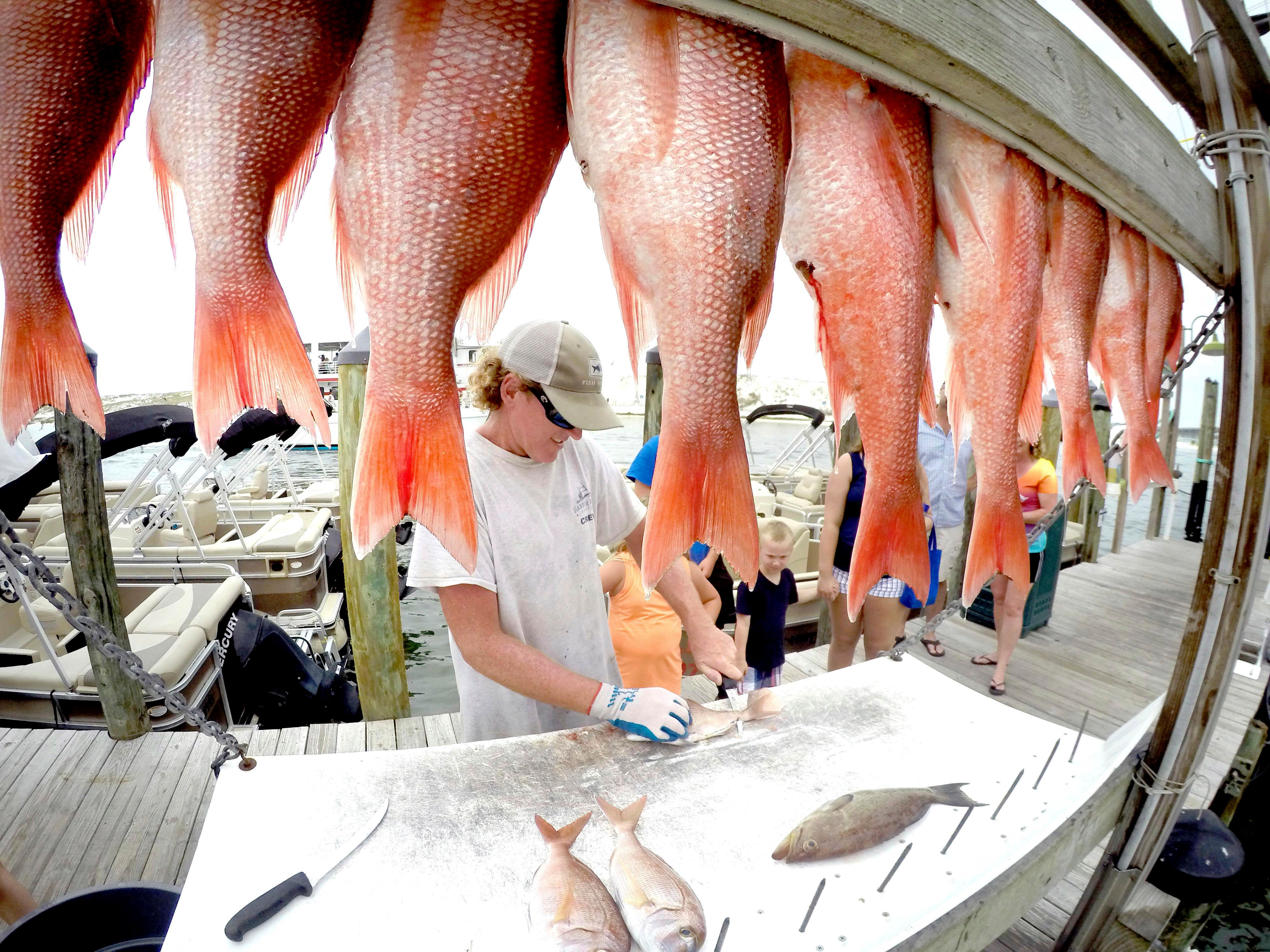US says a drug cartel is behind the longstanding problem of illegal fishing in the Gulf of Mexico
For years, U.S. authorities and fishermen have complained about illegal fishing for red snapper in the Gulf of Mexico, and now it's clear who is behind the lucrative trade: a Mexican drug cartel

Your support helps us to tell the story
From reproductive rights to climate change to Big Tech, The Independent is on the ground when the story is developing. Whether it's investigating the financials of Elon Musk's pro-Trump PAC or producing our latest documentary, 'The A Word', which shines a light on the American women fighting for reproductive rights, we know how important it is to parse out the facts from the messaging.
At such a critical moment in US history, we need reporters on the ground. Your donation allows us to keep sending journalists to speak to both sides of the story.
The Independent is trusted by Americans across the entire political spectrum. And unlike many other quality news outlets, we choose not to lock Americans out of our reporting and analysis with paywalls. We believe quality journalism should be available to everyone, paid for by those who can afford it.
Your support makes all the difference.For years, U.S. authorities and fishermen have been complaining about illegal fishing for red snapper in the Gulf of Mexico, and now it’s been revealed who is behind the lucrative trade: a Mexican drug cartel.
The U.S. Treasury Department announced sanctions Tuesday against members of the Gulf drug cartel, which operates in the border cities of Reynosa and Matamoros, across from McAllen and Brownsville, Texas.
While commercial fishing and drug cartels may seem like an unlikely combination, it makes perfect sense for a criminal organization.
The department says the cartel uses fishing boats to facilitate drug and migrant smuggling; along the way, the boats catch tons of red snapper, a commercially valuable but vulnerable species. The boats often launch from Playa Bagdad, east of Matamoros, on the Gulf coast.
“The Gulf Cartel engages in the illicit trade of red snapper and shark species through ‘lancha’ operations based out of Playa Bagdad,” the department said. “Apart from their use for IUU (illegal, unregulated or unreported) fishing in U.S. waters, lanchas are also used to move illicit drugs and migrants into the United States.”
To add insult to injury, these Mexican boats, often based out of Playa Bagdad, sell their catch in Mexican border cities, where they are sometimes shipped into Texas for resale in the U.S. market.
This occurs while U.S. fishermen had to respect strict seasonal limits or closures designed to protect fish populations.
“As the fishing of red snapper and shark species is under strict limits in the United States, and therefore those species are more abundant in U.S. waters, Mexican fishermen cross into U.S. waters to fish via these lanchas,” the department said.
“They then bring their catch back to lancha camps into Mexico, where the product is ultimately sold and, oftentimes, exported into the United States,” it continued. “This activity earns millions a year for lancha camps. In addition, it also leads to the death of other marine species that are inadvertently caught” on the long lines of baited hooks the boats use.
This isn't the first time cartels have been involved in illegal fishing in Mexico. Experts say other drug cartels are involved in the prohibited gillnet fishing for totoaba in the Gulf of California, also known as the Sea of Cortez, threatening the world's most endangered porpoise, the vaquita marina.
Those designated under Tuesday's sanctions — which block any of their U.S. assets — include Gulf cartel local bosses in Playa Bagdad, as well as two owners of fishing camps there.
The illegal fishing problem became so severe that in 2022, the U.S. government prohibited Mexican fishing vessels from entering U.S. ports on the Gulf of Mexico, arguing the Mexican government had not done enough to prevent its boats from illegally fishing in U.S. waters.
Mexican fishing boats in the Gulf “are prohibited from entering U.S. ports, will be denied port access and services,” the National Oceanic and Atmospheric Administration wrote in a report in 2022. According to a Sept. 10, 2024 NOAA bulletin, those restrictions remain in place.
Small Mexican boats frequently use prohibited long lines or nets to haul in snapper in U.S. waters, which can harm other marine life, such as sharks.
NOAA said in a previous report that the U.S. Coast Guard apprehended dozens of Mexican boats in the Gulf, including repeat offenders who had been interdicted multiple times since 2014.
It noted the United States imported nearly five tons of fresh and frozen snapper from Mexico in 2018, raising concerns that "these imports may have included fish harvested illegally in U.S. waters.”
____
Follow AP’s coverage of Latin America and the Caribbean at https://apnews.com/hub/latin-america